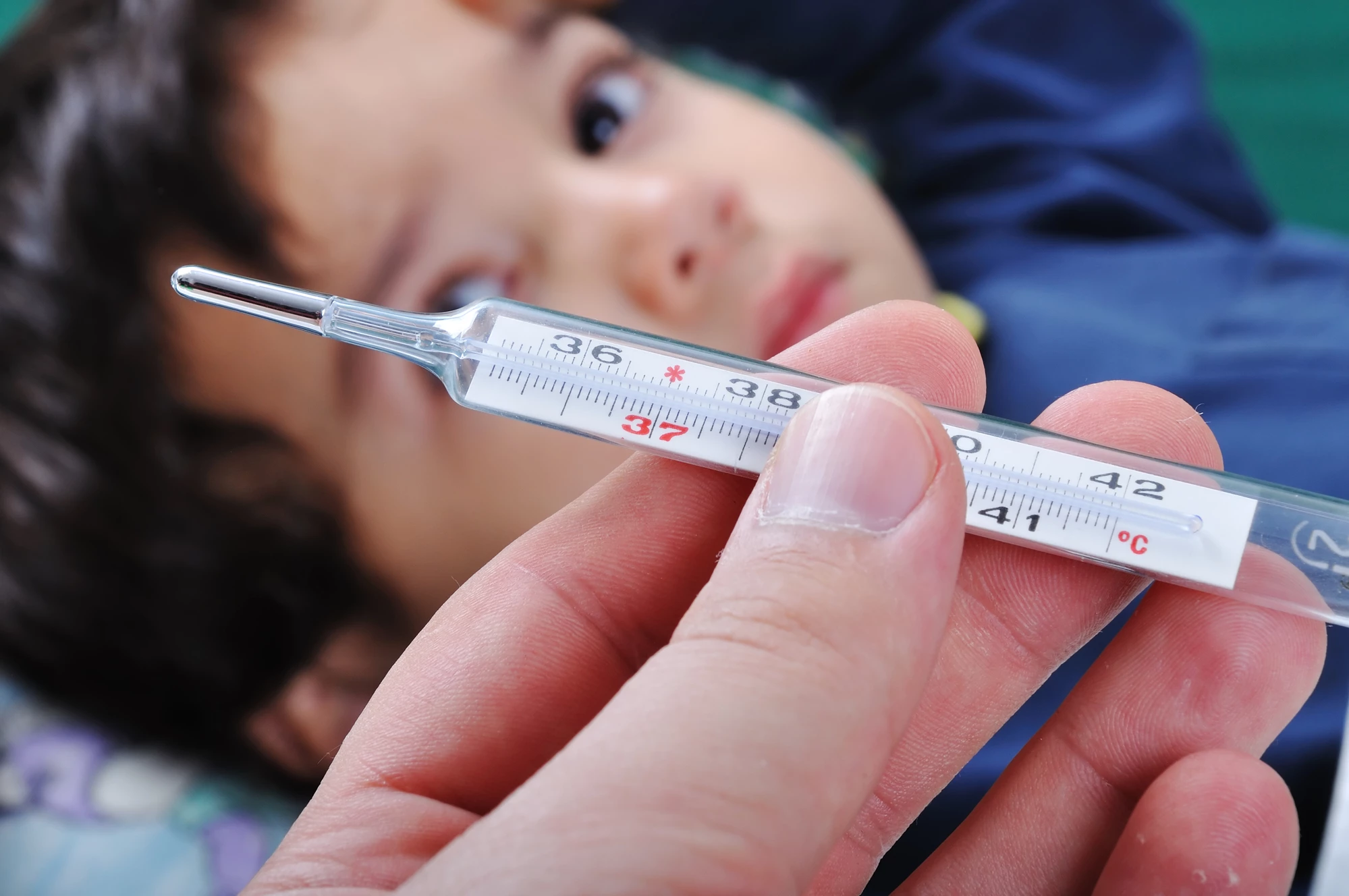Parents of children with autism have often reported a strange phenomenon: when their child has a fever, their behavioral symptoms seem to improve. Now a new study from MIT and Harvard has added some scientific weight to this observation, identifying a specific immune molecule released during fever and shedding light on how it interacts with the brain to potentially reduce these symptoms.
The reason why infections, and the fevers they cause, might have any effect on autistic behaviors has never been established. But the reports were frequent enough that scientists began to look into it, with several large-scale studies documenting the phenomenon. For example, a 2017 study of over 2,100 children showed that as many as 17 percent of them showed improved behavioral symptoms while they had a fever.
Now, researchers from MIT and Harvard Medical School have investigated the link, and identified the potential cellular interactions behind it.
“People have seen this phenomenon before [in people with autism], but it’s the kind of story that is hard to believe, which I think stems from the fact that we did not know the mechanism,” says Gloria Choi, senior author of the study. “Now the field, including my lab, is trying hard to show how this works, all the way from the immune cells and molecules to receptors in the brain, and how those interactions lead to behavioral changes.”
The researchers studied mice that exhibited behavioral symptoms of autism. They induced a fever by injecting the animals with a bacterial component called LPS, and sure enough, these symptoms – in particular, their social interactions – improved temporarily.
The team then looked closer, to see what kinds of molecular interactions were going on in there. They found that an immune molecule called IL-17a was being released as a result of the infection, and that it was interacting with a region of the brain called S1DZ. This region is thought to be in charge of tracking where the body is in space, and has been linked to deficits in social behavior – at least, in mice.
The researchers found that IL-17a reduces neural activity in S1DZ, which in turn makes the mice more socially outgoing with other mice. To isolate the molecule as the sole cause, and not some other side effect of the infection or fever, the team experimented by inhibiting IL-17a or the receptors it talks to, and found that it had no effect on their behavior. Simply raising the animals’ body temperature also had no effect.
“This suggests that the immune system uses molecules like IL-17a to directly talk to the brain, and it actually can work almost like a neuromodulator to bring about these behavioral changes,” says Choi. “Our study provides another example as to how the brain can be modulated by the immune system.”
Next, the researchers repeated the experiments using three different mouse models of autism. These animals had been genetically engineered to lack certain genes – Shank3, Cntnap2, and Fmr1 – which have all been shown to create the social behaviors associated with autism.
Interestingly, when the team injected these mice with LPS, there was no change in their behavior. Although the expected inflammation did occur, there was no uptick in IL-17a levels like there was in the first autism model. If the team skipped the middleman and injected IL-17a straight into the mice, the behavior changes did take place.
There is another intriguing wrinkle to the story too, as previous studies by the team have shown a further link between fever and autism. If a mother contracts a severe infection during pregnancy, there’s a higher chance of the baby going on to exhibit autistic behavioral symptoms. The culprit? Higher levels of IL-17a in the mother seem to affect the S1DZ in the developing fetus’s brain.
“It was amazing to discover that the same immune molecule, IL-17a, could have dramatically opposite effects depending on context: Promoting autism-like behaviors when it acts on the developing fetal brain and ameliorating autism-like behaviors when it modulates neural activity in the adult mouse brain,” says Jun Huh, senior author of the study. “This is the degree of complexity we are trying to make sense of.”
As usual, there’s no guarantee that results of mouse studies will translate to humans, but the researchers say that further investigation may open up new avenues for potentially treating behavioral symptoms of autism and related neurological disorders.
The study was published in the journal Nature.
Source: MIT




